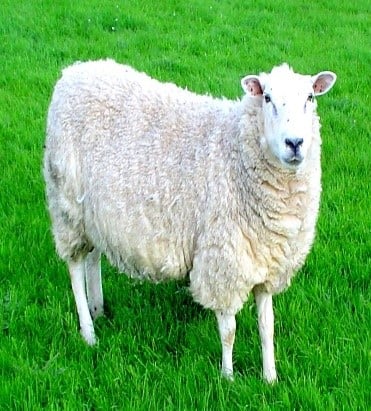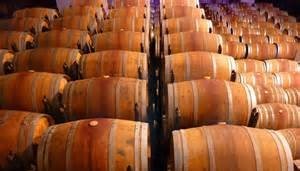What is Old is New Again. Sheep Approved
Italy’s Pecorino Wine Revival:
Although many compare it to Sauvignon Blanc and Pinot Grigio, Pecorino is unique among white wines. It is versatile, enjoyed in its youth because of its freshness, and capable of becoming age-worthy over time.
Pecorino: An Italian Center for White Wine. Sheep Approved
The precise origins of Pecorino remain a mystery, but like born in Italy. It has been accessible (although obscure) in Italy for centuries but recently rediscovered (1990s). The grape presents challenges, including low yields and unpredictable growing conditions; however, innovative winemakers have recognized its potential and have spearheaded its revival, leading to its recent resurgence. The inaugural varietal bottling of Pecorino, aptly named “Pecorino,” emerged in Abruzzo in 1996, marking the beginning of its modern chapter.
Regionally, Abruzzo serves as the primary territory for the cultivation of the Pecorino grape. This central region of Italy, bordered by the Apennine Mountains to the west and the Adriatic Sea to the east, it offers an ideal environment for Pecorino’s cultivation.
The landscape is diverse, featuring high rocky slopes and low coastal areas, creating optimal conditions for the grape’s finicky nature. The region hosts many microclimates, characterized by varied soil compositions of clay, limestone, and gravel, as well as influences from the sea, altitude, and cooling winds. Abruzzo’s commitment to Pecorino is evident, with nearly 3,000 acres dedicated to its cultivation as of the end of 2019, and the numbers continue to grow.
Define Pecorino
The name “Pecorino” indicates a distinct wine in the region. One plausible origin of the name stems from the “transumanza,” a historical practice where Abruzzo shepherds guided their sheep from the mountains of Abruzzo south to Puglia every September until the 1950s. Since Pecorino grapes ripen early, they likely provided sustenance for the journeying sheep during this migration. Additionally, “pecora,” meaning “sheep” in Italian, further connects the grape to the animals that grazed upon it, potentially inspiring its name. Despite its association with cheese due to its name, Pecorino wine stands as a unique and distinguished offering in its own right.
Distinct. Unique Flavor Profile
Pecorino wines often exhibit a unique flavor profile characterized by notes of citrus, tropical fruits, and aromatic herbs. They may also have a slightly saline or mineral quality, particularly when grown in coastal regions.
High Acidity
Pecorino grapes typically retain high levels of acidity, even when fully ripe. This acidity contributes to the wine’s freshness and ability to pair well with a variety of foods.
Aromatics
Pecorino wines are known for their aromatic complexity, often displaying floral, herbal, and fruity aromas that can be intense.
Texture
Depending on winemaking techniques, Pecorino wines can have a range of textures, from crisp and light-bodied to more full-bodied and creamier, offering versatility in style.
Terroir Expression
Like many grape varieties, Pecorino expresses nuances of its terroir, meaning wines from different regions or vineyard sites may have distinct characteristics influenced by factors such as soil type, climate, and altitude.
Limited Production
While Pecorino has experienced a resurgence in popularity in recent years, it is still relatively rare compared to more widely planted grape varieties. This limited production adds to the allure and uniqueness of wines made from Pecorino.
Overall, wines from Pecorino are distinct for their vibrant flavors, high acidity, aromatic complexity, and ability to convey the characteristics of their terroir.
My Personal Opinion
Agricola Caprera Abruzzo Pecorino Vento e Sale 2021.
Nestled in the serene landscapes of Abruzzo, Agricola Caprera presents its captivating offering. Embracing the coastal influence of the region, the name “Vento e Sale” evokes a sense of the sea’s essence, suggesting a wine with a distinct character shaped by the gentle caress of salty breezes.
Crafted with care on an organic farm, this wine is a reflection of commitment to purity and authenticity. Cultivated from vines averaging five years in age, thriving in clay and Marl soils, each grape embodies the essence of the land. Fermented spontaneously with minimal intervention, it stands as a testament to dedication to sustainable practices.
Harvested in early September from vines overlooking the sea on an eastern slope, the grapes undergo a gentle pressing to preserve their essence. Maturing on fine lees in stainless steel tanks, the wine undergoes an aging process before being bottled without filtration, ensuring each sip captures the essence of its exceptional vintage.
Notes
In the glass, a golden hue transitions to bronze. On the nose, delicate aromas of ripe fruits and nuts intertwine with hints of fresh oranges, spice, and almonds, balanced harmoniously with light and bright acidity. Herbaceous nuances and mineral undertones define its distinctive character, leading to a lingering finish that beckons exploration and discovery.
Suitable for both vegans and vegetarians, this wine offers a unique sensory experience that captures the essence of fine craftsmanship.
© Dr. Elinor Garely. This copyright article, including photos, may not be reproduced without written permission from the author.
This is part 2 of a 3-part series.
Read Part 1 Here – Slow Wine in Italy: A Passing Fad or Essential Evolution?




